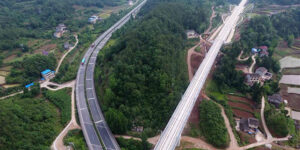Core Principles of President Kassym Tokayev’s Vision for Kazakhstan’s Future

On September 2, 2024, Kazakhstan President Kassym-Jomart Tokayev delivered a landmark state-of-the-nation speech titled “Just Kazakhstan: Law and Order, Economic Growth, Public Optimism.” The address outlined his vision for the country’s future, touching on economic reforms, governance, law, and sustainability and offering a roadmap to accelerate modernization and drive long-term national growth. His nine core principles reflect a commitment to tackling immediate challenges while laying the foundation for a more prosperous future.
- Tax Reforms: A Path to Economic Efficiency
A cornerstone of President Tokayev’s vision for the future lies in reforming Kazakhstan’s tax system to better reflect the needs of a dynamic, evolving economy. In his speech, President acknowledged that while Kazakhstan has made significant strides in economic development, its tax framework must adapt to remain competitive in the global market. He proposed a streamlined tax code that would simplify compliance for businesses of all sizes. The reforms aim to reduce bureaucratic hurdles and improve transparency, ultimately fostering a more predictable environment for investors. The need for differentiated tax rates to stimulate key sectors, such as technology and renewable energy was also highlighted, aligning with Kazakhstan’s long-term goal of diversifying its economy away from its traditional reliance on natural resources. - Enhancing the Investment Climate
Inextricably linked to tax reform is President Tokayev’s vision for an improved investment climate. Foreign investment is crucial to Kazakhstan’s economic prosperity, Tokayev introduced several measures aimed at attracting and retaining international investors. A key element of this strategy is the establishment of a “single window” system for investors, simplifying the regulatory process and making it easier for businesses to set up operations in Kazakhstan. The government aims to build a highly skilled workforce that will appeal to high-tech and knowledge-based industries by investing in education and vocational training, This focus on human capital development is central to Kazakhstan’s efforts to transition to a more diversified, innovation-driven economy. - Unleashing Industrial Potential
Kazakhstan’s future growth lies on the development of a robust industrial base. The country’s wealth of natural resources, its strategic location at the crossroads of Europe and Asia, and its expanding infrastructure position it well for industrial expansion. President outlined several initiatives to boost key sectors like manufacturing, agriculture, and mining to fully capitalize on these advantages.
Government support, including financial incentives for businesses operating in special economic zones (SEZs), will play a significant role in encouraging industrial growth. The President also called for more significant investment in research and development (R&D), urging closer collaboration between the public and private sectors to drive technological innovation. This emphasis on innovation is intended to move Kazakhstan up the global value chain, transforming the country into a center for advanced industrial production. - Addressing Infrastructure Challenges
President Tokayev also addressed the urgent need to modernize Kazakhstan’s energy and utilities infrastructure. He noted that the current conditions for lending in these sectors are inadequate for the country’s long-term needs and called on the government to secure more favorable financing for the construction of new energy generation facilities. This push for infrastructure modernization includes plans to expand the country’s reliance on nuclear energy as a cleaner, more sustainable alternative to traditional energy sources.
Water management was another critical issue highlighted by the President. Kazakhstan’s agricultural sector, in particular, suffers from outdated irrigation systems, and stressed the urgency of investing in water conservation and management technologies. - Workforce Development and Human Capital
President Tokayev emphasized the need to address shortages in key industries such as energy, construction, and water management, while also preparing the country’s youth for the “professions of the future.” Strengthening ties between universities and industry is a critical part of this strategy, ensuring that Kazakhstan’s education system is responsive to the evolving needs of the global economy. The declaration of 2025 as the “Year of Working Professions” reflects the President’s commitment to elevating the status of skilled labour in Kazakhstan. - Strengthening the Health and Social Support Systems
Recognizing the importance of a healthy population to Kazakhstan’s future, President Tokayev called for a comprehensive overhaul of the nation’s healthcare system. He proposed the creation of a unified state medical information system to improve coordination among healthcare providers and address the ongoing shortage of medical professionals. In addition to healthcare, the president announced reforms to the country’s social support system. He stressed that social assistance must be targeted at those who truly need it and that the principles of fairness, openness, and efficiency should guide these reforms. One example of this is the National Fund for Children project, which allocates financial resources to support children’s development and well-being. - Environmental Protection and Sustainability
Environmental sustainability was another critical pillar of Tokayev’s vision for Kazakhstan. He emphasized the need for advanced technologies and monitoring systems to protect the country’s natural resources, particularly its forests, steppes, and water bodies. He highlighted the success of the “Taza Kazakhstan” (Clean Kazakhstan) campaign, which mobilized millions of citizens to participate in environmental cleanup efforts.
In line with global trends, Kazakhstan is also committed to achieving carbon neutrality by 2060. He called on businesses to adopt green technologies and practices, and he announced financial incentives for companies that prioritize sustainability. The preservation of Kazakhstan’s unique flora and fauna, particularly its forests and steppes, was also highlighted as a national priority. - Enhancing Public Administration
President Tokayev emphasized the need for more efficient and responsive governance. He noted that since the introduction of the “listening state” concept five years ago, Kazakhstan has made significant progress in improving communication between the government and its citizens. However, there is still room for improvement. the creation of a unified ecosystem for handling citizen appeals, which would help government agencies better understand and respond to the public’s needs. A key aspect of improving public administration is the ongoing political transformation in Kazakhstan, including the direct election of rural akims (mayors). - Maintaining Law, Order, and Security
President Tokayev emphasized the importance of maintaining law and order in Kazakhstan. He made it clear that there is no place for discrimination or oppression in the country, whether on linguistic, religious, ethnic, or social grounds. Ensuring the security of all citizens is a top priority for his administration, and he called on law enforcement agencies to intensify their efforts to combat crime and corruption. He also stressed the importance of upholding the rule of law, particularly in protecting investor rights. A predictable and fair legal system, he argued, is essential for attracting and retaining foreign investment. Additionally, he highlighted Kazakhstan’s commitment to a balanced foreign policy, emphasizing diplomacy and cooperation as essential tools for safeguarding the country’s sovereignty and promoting its national interests.
President Kassym Tokayev’s state-of-the-nation address presents a clear and comprehensive vision for Kazakhstan’s future. His aim is to position Kazakhstan as a dynamic and prosperous nation in the years to come. His commitment to modernization, inclusivity, and reforms reflects Kazakhstan’s ambitions as a leading player on the global stage while ensuring the well-being and security of its citizens.


